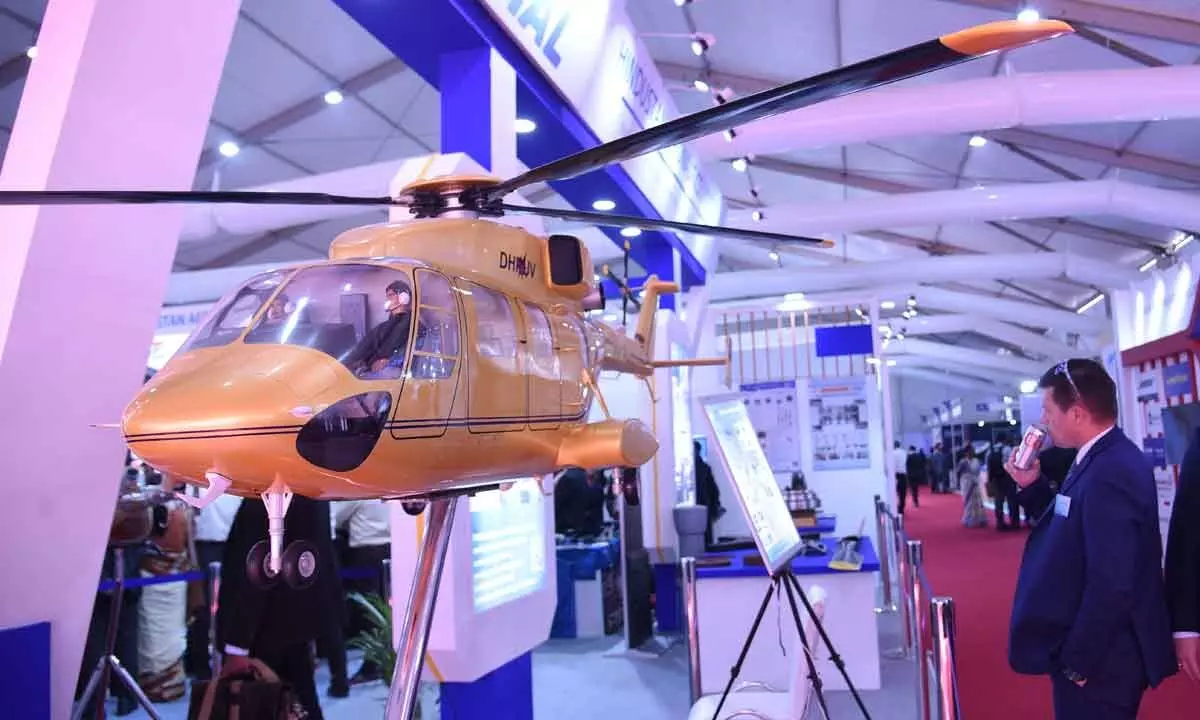Red tape a big hurdle for foreign investors
Global investors want clear skies before landing in India’s highly competitive aviation market
image for illustrative purpose

Hyderabad: As India’s Information Technology Minister Ashwini Vaishnaw recently unveiled ambitious plans for attracting $100 billion in annual Foreign Direct Investment (FDI) in the coming years, foreign investors express concerns about the ease of doing business in the country. The perceived challenges stem primarily from bureaucratic red tape. Investors emphasize that for India to successfully draw in investments, there must be a commitment to consistent government policies, providing clarity on their requirements.
Speaking with Bizz Buzz, Romy Hawatt, Founder and Chairman, Airways Aviation, said: Obviously, India happily takes money or investments in. But as a prospective direct foreign investor for India, I need to understand that the ecosystem supports my rights. Also, I need to know whether the Reserve Bank is not going to hold or block funds going out. If the government wants to really tap foreign investments, they got to do what other countries are doing. For example, in the UAE, we can invest and repatriate as much profits as one wishes after paying the local taxes. They make the Visa process seamless whereas in India everything is tied down bureaucratically.”
Hawatt wants to bring in the international standards of flying schools to Hyderabad which otherwise costs a student upwards of Rs 90 lakh a year. He currently runs a school here in the city for foundation courses consisting theory subjects which is for selection and assessment of aspiring pilots.
He is in the process of discussing with other FTOs (flying training organisations) the pros and cons of setting up a flying school in India. On which, he commented, “The regulation kicks in heavily when it comes to the flying phase. We are looking at strategic alliance for setting up a flying school in Hyderabad. We are looking at investing and acquisition but there are number of hurdles. As an investor, there are no assurances in place, such as, what we invest in India that we can take out again, there is no assurance in terms of repatriation of profits or capital so it is a one-way street in India. This is what deters a lot of investors who are keen on investing in India.”
According to him, red tape is primarily one of the hurdles for foreign investors, as he said, “The authorities here tend to jealously guard their territories for nothing more than having control over their territories. They need to act local but start thinking globally.” Despite the absence of international standards in skill development, India’s strength in engineering stands out. Changi airport in Singapore expressed inclination to collaborate with India’s airport engineering experts. “As we are expanding and as I am in charge of the development of the airport in Singapore, I am looking at knowledge transfer and skill set transfer such as engineering, maintenance and construction from India. The airport engineering experts can come to Singapore and at the same time we can come forward to India and work together for airport visits for exchange of engineering information,” said How Choon Onn, Advisor-CEO’s Office, Changi Airports International Pte Ltd. In addition to the identified gap and demand for flying training and skilled talent in the Indian aviation sector, companies in the aircraft manufacturing segment are carefully considering their strategies for introducing products into the Indian market. Canada-based Horizon Aircraft has received orders for not only selling its Cavorite X7 here but also for manufacturing it in India. Jason O Neill, COO, Horizon Aircraft, which has been recently listed on New York Stock Exchange, said, “As India’s economy is growing, we are going to see huge demand for aircrafts powered by hybrid electric power systems, and latest technologies. So far, only conversations have been positive for not only selling but also for manufacturing in India.”

